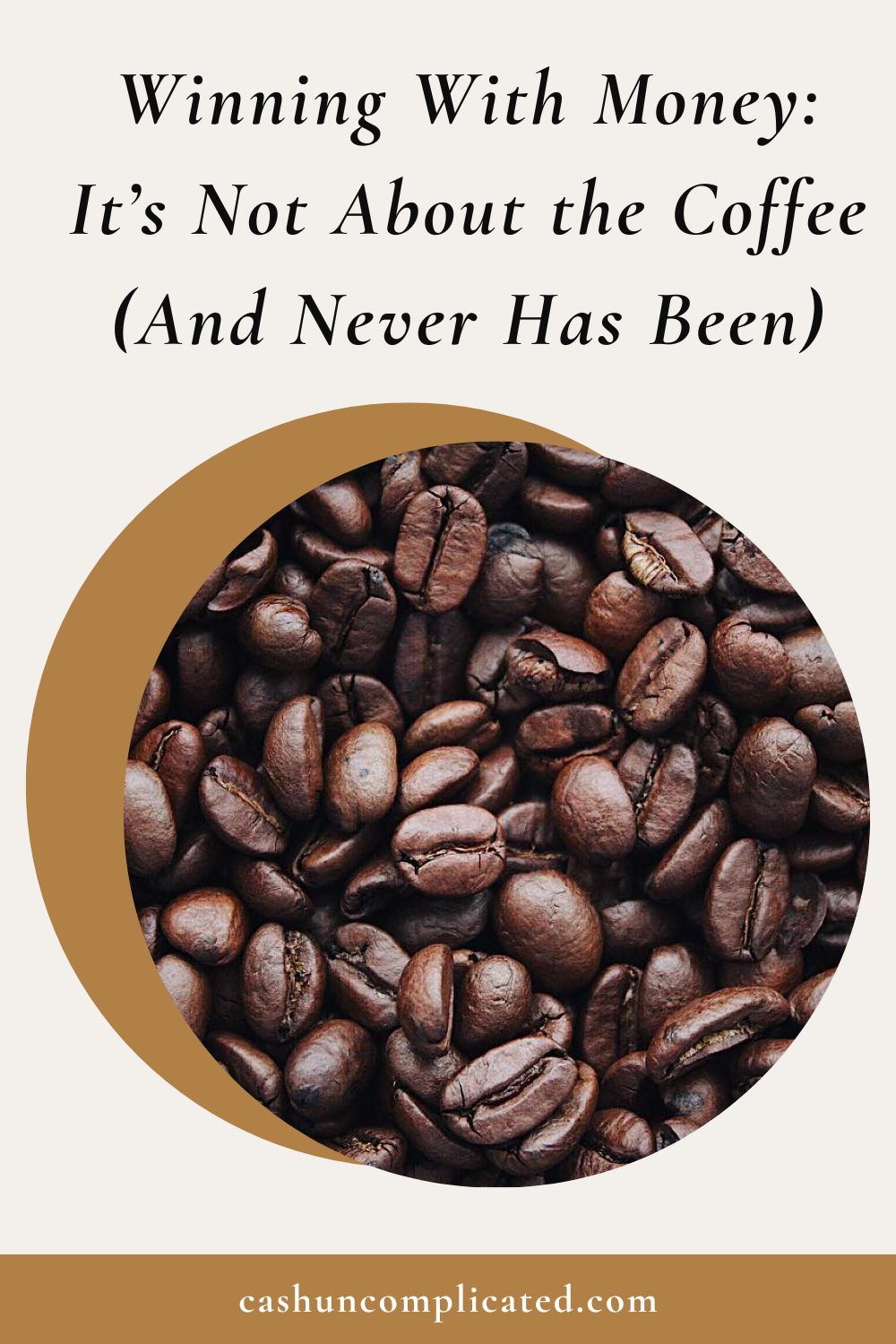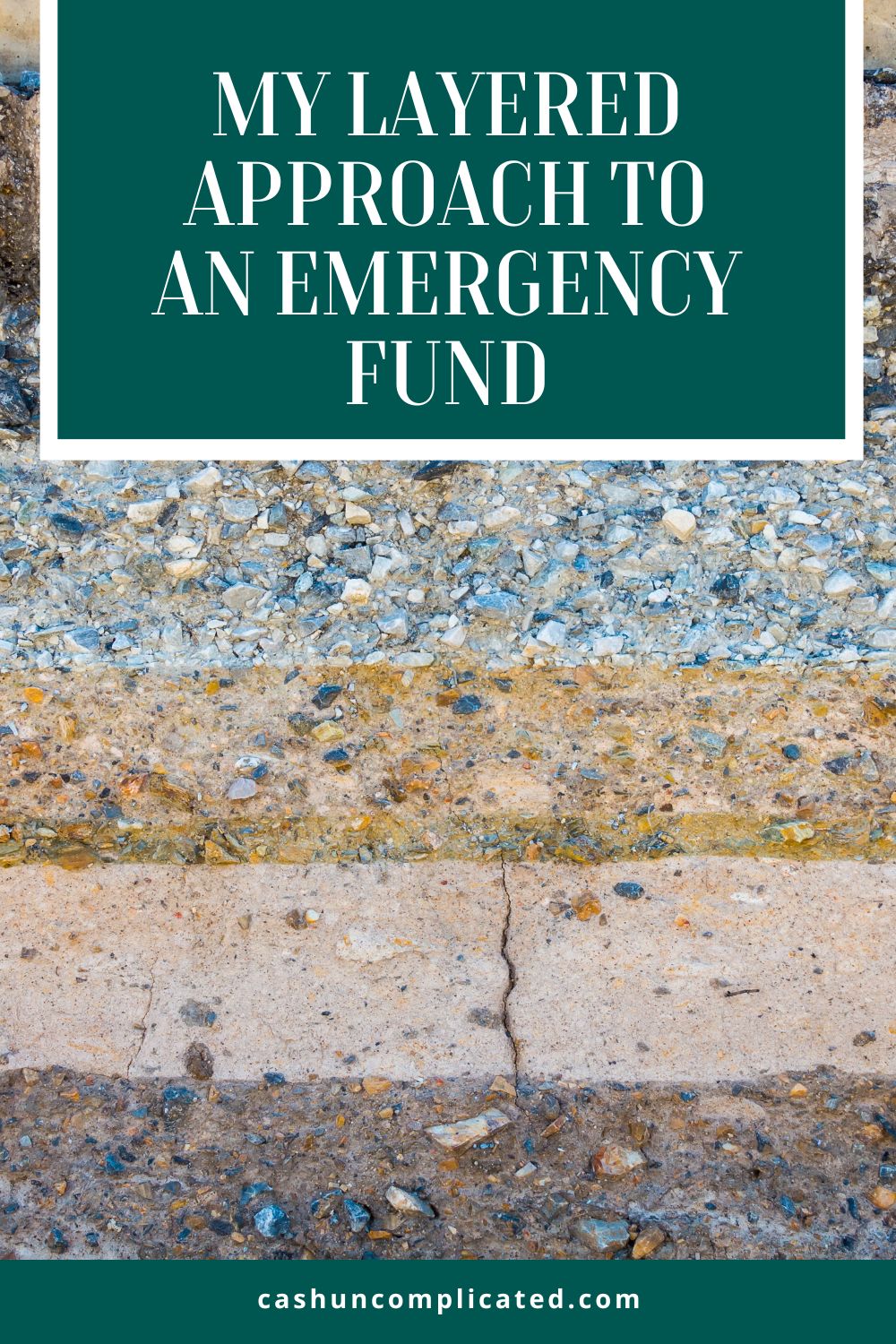Winning with money is a broad category. It’s early retirement for some, financial independence for others, or for some, just getting their time back and enjoying the small things in life. Whatever your reasons, it’s not about the coffee, and never has been.
The Coffee Cliché in Personal Finance
How many times have you heard this from personal finance experts: Making your own coffee instead of buying it out saves X number of dollars per week. If that X number of dollars is invested over a 30-year period, you will have X amount of money (usually in the hundreds of thousands).
And on the other side of it: Making your own coffee instead of buying it out is the small stuff. Focus on the big stuff because the small things don’t make much of a difference.
Related: Brewing Your Own Coffee: Will it Really Make You a Millionaire?
The Great Coffee Debate
The great coffee debate has been going on for years. It’s not about the coffee though. Someone who develops the discipline to brew their own coffee every morning isn’t necessarily going to become wealthy. And someone who buys their coffee out every morning isn’t going to go broke all of a sudden.
Coffee has become the poster boy for personal finance debates, but it’s not about the coffee. There’s so much more to it.
Value-Based Spending
What’s it’s really about is value-based spending. Brewing your own coffee is just the low hanging fruit and the focus of clickbait articles.
Value-based spending is identifying what you want to spend on and following through with those things. For example, someone who likes cars would spend more money on their car than the person who just sees their car as the way to go from point A to point B, or to and from work.
A person really into reading is going to spend more on books than someone who doesn’t much care for reading. A surfer will spend money on surfboards, a golfer will spend on clubs and green fees. The list goes on and on.
Related: Value-Based Spending: How to Create a Budget Around What You Value
Life Decisions and Creating an Identity
It’s also about life decisions and creating an identity. Using our examples from above:
- A car enthusiast is going to spend more on cars than the average person
- The surfer will spend more on boards and surfing trips
- A golfer spends more on clubs and green fees
This becomes part of a person’s identity. The surfer understands they love surfing and will spend around it. But they’re not spending money on golf clubs to let them sit around in the garage. Nor are they spending money on cars when all they want is something to get them from home to the beach.
Likewise with the person into cars. They aren’t spending on surfboards when they don’t care about the sport. This person knows what they like and they spend on those things.
Spend around your lifestyle not around what others are doing or what you think you should be doing. Everything else is cut out or significantly reduced.
Eliminate Decision Fatigue
Value-based spending and creating an identity around what you value is also going to help eliminate, or greatly reduce, decision fatigue. To give a simple definition, decision fatigue is when you get tired of making decisions.
Every day there are decisions people have to make: what time to get up, where to go for lunch, who is taking the kids to practice, decisions at work, etc. The less decisions you have to make around your personal finances, the better.
If you’re someone who likes to surf, eat healthy, and travel every couple months, those are the things you’re going to spend your money on. Most other things will be met with a no. You don’t have to think about it because they aren’t part of your values.
Going back to the car example, if you’re not someone who cares about cars other than getting a reliable one to go from here to there, then you’re not going to spend a premium on a car. No real decision there because cars just aren’t part of your values.
The decision has basically been pre-made because you know where you stand.
Not Spending on Coffee Isn’t Going to Make You Rich
This is where we want to see the forest for the trees. In personal finance, it’s not about the coffee. It’s what the coffee represents, which is value-based spending, being intentional, aware, and making money decisions aligned with our values.
Replace the word “coffee” with anything:
- Lunch
- Takeout
- Shopping
- Happy hours
So making your own coffee isn’t going to make you rich in of itself, but making intentional life decisions for an extended period of time will make you wealthy.
Don’t Miss the Point
I think we’re all guilty of engaging in linear thinking from time to time. It’s natural to seek the correct and absolute answer. We want the “right” answer that squashes any other possible explanations. But that’s not how life works.
That’s why we have to take a step back from the coffee issue in personal finance and see it for what it really is–a microcosm of other things.
Conclusion
I know I’ve been guilty of this, and I’m sure you have too on occasion–taking things literally. That’s why when I hear personal finance experts talk about coffee so literally (whatever side they’re on), it gives the wrong message.
Personal finance isn’t about just one product or thing, like coffee. It’s about following timeless principles like being intentional, creating habits and an identity, value-based spending, etc.
Decisions like whether to make your own coffee or buy it on the way to work fall under these principles, but it shouldn’t be the focal point of anyone’s personal finances.
So take the coffee debate for what it really is, a representation of bigger things. Don’t get caught up in the small details of coffee, but shift your focus to the bigger things it represents.
What principles does the coffee debate represent for you?










